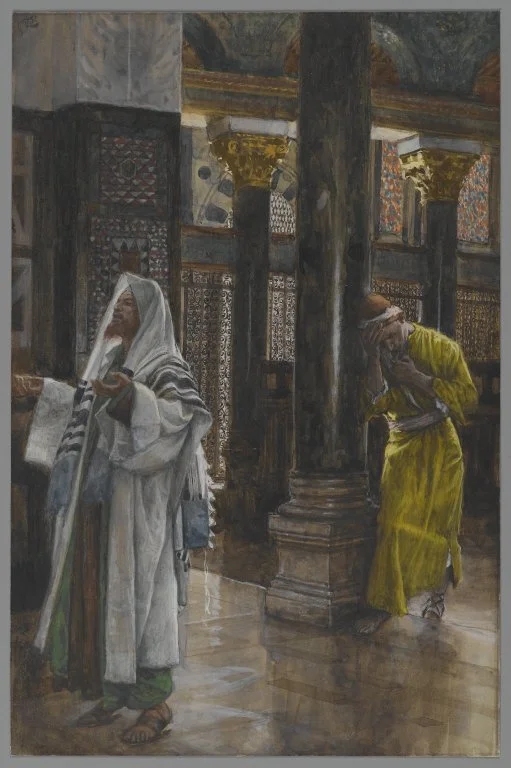Luke 18:9-14
9 He also told this parable to some who trusted in themselves that they were righteous and regarded others with contempt: 10 “Two men went up to the temple to pray, one a Pharisee and the other a tax collector. 11 The Pharisee, standing by himself, was praying thus, ‘God, I thank you that I am not like other people: thieves, rogues, adulterers, or even like this tax collector. 12 I fast twice a week; I give a tenth of all my income.’
13 But the tax collector, standing far off, would not even look up to heaven, but was beating his breast and saying, ‘God, be merciful to me, a sinner!’ 14 I tell you, this man went down to his home justified rather than the other; for all who exalt themselves will be humbled, but all who humble themselves will be exalted.”
"All who humble themselves will be exalted"
This is not the first time that the Gospel tells us about the Pharisees and the tax collectors.
With St. Luke's narration, we are still on the way up to Jerusalem where the Temple is considered to be the Center and the Symbol of the entity of Israel, and the dwelling place of God on His Land.
Jesus refers to the Temple with one of the most significant parables that teaches us about the Spirit and the fruits of acceptable prayers. Two men from two opposing groups WENT UP to the Temple. We go up to Jerusalem, and more importantly, we go up to the Temple to pray.
Both feel the need to renew their personal relations with God. Both attend the prayers at the Synagogue. Both belong to the same congregation, but the Pharisee considers himself righteous because he knows his Bible by heart, fasts twice a week, offers the tithe, refuses the Roman occupation, and expects the coming of the Messiah to set Israel free and restore the Kingdom of David. These are enough reasons to consider himself superior to others and deserve the highest medal of honor.
His prayer starts with thanking God, but continues to enumerate his good deeds, raising himself up and repeating "I, I, I” without raising his eyes to heaven. He despises others that are around him by appointing himself as their judge.
The tax collector knows who he is — a sinner, not only in the eyes of the congregation because he is working for the occupying Roman authority, but also in his own conscience. He doesn’t dare look up to heaven, but is beating his chest asking for mercy, "God, be merciful to me, a sinner!" (v. 13).
Jesus tells us how arrogant the Pharisee is, and how humble and penitent the tax collector is. The first exalts himself and goes back home humbled in God's eyes, while the second, who humbles himself, goes back exalted.
Today's Gospel invites us to reconsider the way we pray. With what kind of spirit do we pray? What model do we choose, to exalt ourselves in God's presence, enumerate the good deeds we think we have done, despise or judge others? Do we keep going up to the Temple, to our Church, to reconnect with God's love, faith and hope through humility, asking God's forgiveness for the sins we commit and for the good we have neglected to do?
We remember the disciples asking Jesus, “Lord, increase our faith.” Let us pray with them and with the tax collector, “Lord, be merciful to us, sinners!"
May we have the courage to stand in His Presence asking for mercy with humility.

